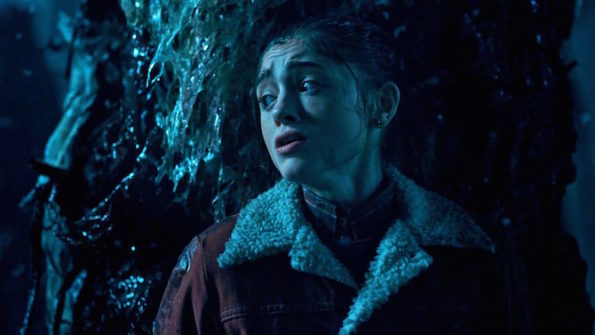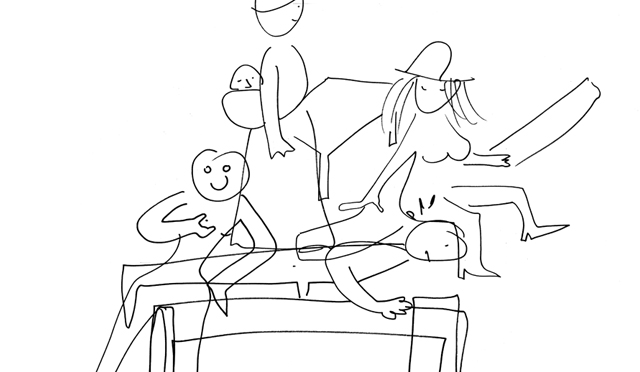Search
To search for an exact match, type the word or phrase you want in quotation marks.
A*DESK has been offering since 2002 contents about criticism and contemporary art. A*DESK has become consolidated thanks to all those who have believed in the project, all those who have followed us, debating, participating and collaborating. Many people have collaborated with A*DESK, and continue to do so. Their efforts, knowledge and belief in the project are what make it grow internationally. At A*DESK we have also generated work for over one hundred professionals in culture, from small collaborations with reviews and classes, to more prolonged and intense collaborations.
At A*DESK we believe in the need for free and universal access to culture and knowledge. We want to carry on being independent, remaining open to more ideas and opinions. If you believe in A*DESK, we need your backing to be able to continue. You can now participate in the project by supporting it. You can choose how much you want to contribute to the project.
You can decide how much you want to bring to the project.

There are many ways to begin the year. With a hangover flopped on the sofa, strolling along the beach, in an after up to your eyeballs, sleeping in a foreign bed or wiping your daughter’s snot. There are many ways to enter the year that will undoubtedly leave its mark, as they all do. We want to begin be looking back to carry on.
In the months occupying what is already the past year …
Donald Trump, a successful businessman, with a clearly racist, misogynist and intransigent discourse manages to become president of the United States.
The majority of the citizens of the United Kingdom chose, in a referendum, to leave the European union.
A party, with a high percentage of members under investigation or accused of corruption, continues to govern after months of generalised cringing, in this party as much as in those that compete with it for power.
A businessman buys the patents for the pharmaceuticals that could cure illnesses like cancer or AIDS and decides to commercialise them at 5000% of their original price.
They seem like plots from different episodes of The Twilight Zone, the series from the 50s, episodes of which recreated stories of fantasy, terror, or science fiction (It was called (The Unknown Dimension in Spanish); but the four points with which we began the text don’t belong to any series, so much as to current affairs from the period 2016 to the beginning of 2017. We don’t know whether to be glad about the year or welcome in the Unknown Dimension.
The terrain of fiction for a while now has picked up on this interest for the unexplainable, mysterious, or the strange. It’s not a new phenomenon. Between 1947 and 1957 in the United States, the period in which the senator Joseph McCarthy drove a campaign persecuting anyone who could be shown to be minimally sympathetic to communist ideals, numerous films were produced that, to flee this persecution, captured the situation in films of science fiction, like for example invasion of the Body Snatcher (1956) by Don Siegel. A terror film that in reality talked about what at that time couldn’t be discussed, which recounts the story of a few inhabitants of a city who are substituted for exact duplicates who behave in a controlled manner and can’t permit the survival of anyone who resists this process.
Another example of the inclination for the supernatural can be found in the return of the zombies in the 90s, a return that continues to the present day (exemplified by the seventh season of The Walking Dead). Lars Bang Larsen observed in an article on e-flux that zombies were about not dying and with the abject, with the living dead in a controlling and alienating post-capitalism, that never sleeps nor lets one sleep.
In the 80s there was David Lynch with his disquieting universes that appeared when he explored somewhat in depth the apparently tranquil and complacent North American society (Blue Velvet, Twin Peaks)and in the 90s, The X-File (L’expedient X), with the agents FBI Mulder and Scully, specialised in cases of paranormal phenomena, sightings of UFOs and strange creatures, investigations were often left archived and were the fruit of secret pressurising and conspiracies of the upper echelons.
We are in 2017 and the 80s are back. We are already far enough removed to analyse critically (as evidenced by the programmes of numerous museums and institutions) but also to recuperate them with nostalgia. In one of the recent episodes of Black Mirror, the series about the dystopias of technology, paradise was…an 80s club!
In 2017, we are in an increasingly unjust and decadent world, in which global warming is a huge problem, however much some deny it, in which inequalities are constantly on the increase; politicians are the puppets of the interests of large corporations and the declaration of the Human Rights of 1948 is a record of good intentions that are far from top priority. It is in this context that the devouring beast of Stranger Things, arises, the boy who disappears, the girl with telekinetic powers, rural and eighties America, parallel dimensions and governmental conspiracies, the renaissance of Winona Ryder, aesthetics and music of the 80s.
Bewilderment, fear, discomfort, a desire to flee… maybe, a bit of everything. Definitely a moment of impasse. Possibility for change?
Welcome to 2017.

A*DESK is a critical platform focused on publishing, training, experimentation, communication and dissemination in relation to contemporary culture and art, which is defined by transversality. The starting point is contemporary art, because that is where we come from and this awareness allows us to go much further, to incorporate other disciplines and forms of thought in order debate issues that are relevant and urgent for understanding our present.
"A desk is a dangerous place from which to watch the world" (John Le Carré)